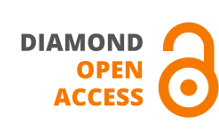Nanoinformatics: spanning scales, systems and solutions

Prof. Iseult Lynch, University of Birmingham, United Kingdom
Prof. Georgia Melagraki, Hellenic Military Academy, Greece
Prof. Diego Martinez, Brazilian Center for Research in Energy and Materials (CNPEM), Brazil
Prof. Kunal Roy, Jadavpur University, India
Nanoinformatics (as an offshoot of chemoinformatics) refers to the combination of physical chemistry and materials theory with in silico approaches to address key questions such as the prediction of (nano)materials functionality, nanomaterials fate in the environment, toxicity or therapeutic ability, recyclability and more. As the properties of nanomaterials themselves span several scales, from electronic, atomistic, mesoscopic to continuum, and are highly dynamic and context dependent (i.e., interact with and are transformed by their surroundings as well as impacting on their surroundings), they introduce new challenges for naming, describing and representing them, and require the combination of physics-based and data-driven modelling approaches.
Contributions to this thematic issue are invited including, but not limited to, the following topics:
- Construction of in silico nanomaterials for simulation of their properties, interactions with biomolecules, membranes, cells and organisms and integration into complex product matrices and devices.
- Development of nanomaterials descriptors and their use in prediction of nanomaterials exposure, mechanisms of biological activity, hazard and risk assessment.
- Integration of models for different toxicity, efficacy and functionality end-points as well as modelling of sustainability, recyclability, insurance etc.
- Mechanistic considerations into IATA, meta-models or multi-criteria optimisation models to simultaneously balance materials functionality, safety and sustainability.
- Applications of nanoinformatics in all areas from nanomedicine, to nanosafety, nano-enabled agriculture, environmental remediation, water purification and desalination, energy capture and storage, construction, art restoration and more.
- Tools to support nanoinformatics, including databases, materials and model identifiers, web-interfaces, reporting and documentation standards for models.
Submission deadline: March 31, 2024
*Please contact the guest editors directly if you still want to submit your article*
Prediction of cytotoxicity of heavy metals adsorbed on nano-TiO2 with periodic table descriptors using machine learning approaches
- Joyita Roy,
- Souvik Pore and
- Kunal Roy
Beilstein J. Nanotechnol. 2023, 14, 939–950, doi:10.3762/bjnano.14.77

Multiscale modelling of biomolecular corona formation on metallic surfaces
- Parinaz Mosaddeghi Amini,
- Ian Rouse,
- Julia Subbotina and
- Vladimir Lobaskin
Beilstein J. Nanotechnol. 2024, 15, 215–229, doi:10.3762/bjnano.15.21

Exploring the relationships between physiochemical properties of nanoparticles and cell damage to combat cancer growth using simple periodic table-based descriptors
- Joyita Roy and
- Kunal Roy
Beilstein J. Nanotechnol. 2024, 15, 297–309, doi:10.3762/bjnano.15.27

On the additive artificial intelligence-based discovery of nanoparticle neurodegenerative disease drug delivery systems
- Shan He,
- Julen Segura Abarrategi,
- Harbil Bediaga,
- Sonia Arrasate and
- Humberto González-Díaz
Beilstein J. Nanotechnol. 2024, 15, 535–555, doi:10.3762/bjnano.15.47

A review on the structural characterization of nanomaterials for nano-QSAR models
- Salvador Moncho,
- Eva Serrano-Candelas,
- Jesús Vicente de Julián-Ortiz and
- Rafael Gozalbes
Beilstein J. Nanotechnol. 2024, 15, 854–866, doi:10.3762/bjnano.15.71

Identification of structural features of surface modifiers in engineered nanostructured metal oxides regarding cell uptake through ML-based classification
- Indrasis Dasgupta,
- Totan Das,
- Biplab Das and
- Shovanlal Gayen
Beilstein J. Nanotechnol. 2024, 15, 909–924, doi:10.3762/bjnano.15.75

Atomistic insights into the morphological dynamics of gold and platinum nanoparticles: MD simulations in vacuum and aqueous media
- Evangelos Voyiatzis,
- Eugenia Valsami-Jones and
- Antreas Afantitis
Beilstein J. Nanotechnol. 2024, 15, 995–1009, doi:10.3762/bjnano.15.81

Introducing third-generation periodic table descriptors for nano-qRASTR modeling of zebrafish toxicity of metal oxide nanoparticles
- Supratik Kar and
- Siyun Yang
Beilstein J. Nanotechnol. 2024, 15, 1142–1152, doi:10.3762/bjnano.15.93

Interaction of graphene oxide with tannic acid: computational modeling and toxicity mitigation in C. elegans
- Romana Petry,
- James M. de Almeida,
- Francine Côa,
- Felipe Crasto de Lima,
- Diego Stéfani T. Martinez and
- Adalberto Fazzio
Beilstein J. Nanotechnol. 2024, 15, 1297–1311, doi:10.3762/bjnano.15.105




































































